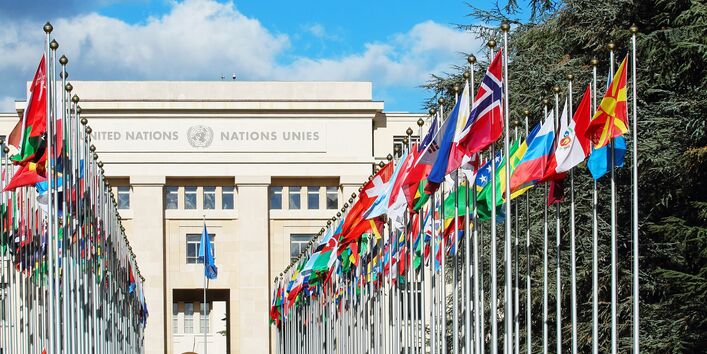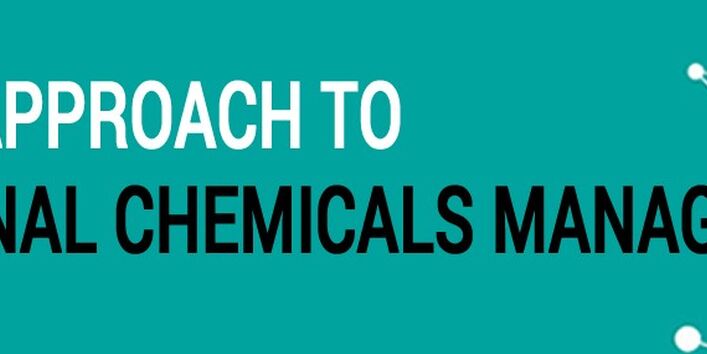The need for international chemicals management
The management of chemicals is an essential cross-cutting element in achieving the 2030 Agenda for Sustainable Development. Chemicals bring many benefits to society. At the same time, releases of chemicals along their entire life cycle cause pollution of air, water and soil. This often leads to adverse effects on human health and the environment. In its 2022 status report, the Lancet Commission on Pollution and Health estimates that at least 1.8 million deaths worldwide can be attributed to individual chemicals. Low-income countries bear the greatest burden. As the global turnover of chemicals will almost double again in the period up to 2030, as it did between 2000 and 2017, the challenges will continue to increase.
The Strategic Approach to International Chemicals Management until 2020
In 2002, at the United Nations World Summit on Sustainable Development in Johannesburg, it was agreed to minimise adverse effects of chemicals on human health and the environment by 2020. To implement this so-called “2020 goal”, the Strategic Approach to International Chemicals Management (SAICM) was established in 2006. The Strategic Approach focuses on the entire life cycle of a chemical and relies on the participation of all sectors and stakeholders from industry and civil society. Voluntary participation is the key here, as binding international agreements do not yet offer such comprehensive opportunities for participation.
The decision-making body of the Strategic Approach is the International Conference on Chemicals Management (ICCM). The ICCM steers the SAICM process and monitors its implementation and progress. A subsidiary body of the Conference is the Open-Ended Working Group (OEWG), which works on the implementation and improvement of SAICM. The Conference and the OEWG are steered by a Bureau in which state and non-state actors are represented. The SAICM Secretariat is hosted by the UN Environment Programme (UNEP) in Geneva (Switzerland) and carries out administrative activities.
UBA is National Focal Point for SAICM
In Germany, the Federal Environment Agency (UBA) acts as German National Focal Point (NFP) for SAICM. In close cooperation with the German Ministry for the Environment (BMUV) and using the broad expertise of UBA, the NFP promotes communication on relevant topics between national, regional and international stakeholders. In this role, UBA regularly invites SAICM stakeholders to national conferences.
We also organise expert discussions on individual topics of global relevance. The National Focal Point is also responsible for reporting on the implementation of the Strategic Approach in Germany. Further information can be found in the SAICM brochure.
International chemicals and waste management after 2020
The SAICM objectives were not achieved by the target year 2020. This was explicitly confirmed by an independent evaluation of SAICM and the Global Chemicals Outlook II of the UN Environment Programme (UNEP) in April 2019. SAICM's mandate, which was established in 2006, was agreed until 2020. It therefore urgently needs to be renewed for the time after that. Since 2015, an intersessional process has been preparing recommendations for shaping the strategic approach and international chemicals and waste management after 2020. The process is open to all stakeholders. The International Chemicals Management Conference (ICCM) is responsible for making decisions.
Germany's special responsibility
Germany holds the presidency until the end of the next World Conference on Chemicals, ICCM5. For ICCM5, the German government is striving for an ambitious framework for international chemicals management. The involvement of relevant stakeholders and sectors, the promotion of innovation for sustainable chemistry and capacity building in developing countries are absolutely essential for this. As the largest chemical location in Europe, Germany has a special responsibility in international chemicals management.
Due to the COVID-19 pandemic, the conference originally planned for 2020, had to be postponed. The ICCM5, also known as the World Chemicals Conference, will now take place from 25 to 29 September 2023 in Bonn/Germany. You can find more information here.
Where can I find information on SAICM?
- The SAICM internet portal can be found at www.saicm.org
- UBA background paper from 2016 (in German)

